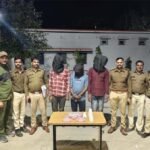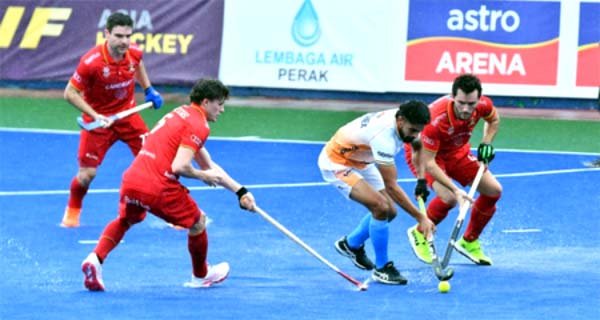New Delhi, May 6 (UNI) The Supreme Court on Tuesday directed the States of Tamil Nadu and Kerala to immediately act on the recommendations of the Supervisory Committee regarding the maintenance of the Mullaperiyar Dam, stressing that the matter involves urgent safety issues and prolonged inaction cannot be justified.
A special bench comprising Justices Surya Kant, Dipankar Datta, and N Kotiswar Singh expressed concern over the lack of follow-up by the two states despite clear directions and meetings facilitated by the Supervisory Committee, which was constituted under the Court’s earlier orders.
“We see no justification for the inaction by the state authorities,” the bench observed. “Some urgent issues with regard to the maintenance of the Mullaperiyar Dam were identified earlier, and a meeting was held with the state representatives. Yet, no steps have been taken since then.”
The bench ordered both Tamil Nadu and Kerala to comply with the Committee’s recommendations within two weeks and also submit a compliance report addressing both the agenda items and six critical issues highlighted in a prior Supreme Court order.
The Court added that if either state encounters any genuine hurdles in implementing the recommendations, they are at liberty to raise the issue before the Court on the next date of hearing.
During the hearing, Senior Advocate Shekhar Naphade, representing Tamil Nadu, stressed the urgency of the matter. He noted that Tamil Nadu has been trying to get the 2014 Supreme Court judgment (which had declared the dam safe and allowed the water level to be raised) implemented for years, and accused Kerala of repeatedly obstructing progress.
“This has to end somewhere,” Naphade said. “We need a mechanism to implement your Lordships’ decree.”
In response to a dispute over permission for felling trees needed for maintenance, the bench observed that Tamil Nadu should apply to the Ministry of Environment, Forest and Climate Change (MoEFCC) rather than seeking clearance from Kerala. Naphade countered that such permission was indeed granted earlier by Kerala but was revoked a week later without justification. He confirmed that Tamil Nadu would now apply directly to the central ministry.
Additional Solicitor General Aishwarya Bhati, appearing for the Union Government, informed the Court that a meeting of the Supervisory Committee had been convened as per the Court’s earlier order. She handed over the minutes of the meeting and pointed out several unresolved technical and inter-state issues flagged during discussions.
Representing Kerala, Senior Advocate Jaideep Gupta sought a week’s time to file a formal response to the minutes. However, the bench categorically rejected the request, stating that Kerala’s representatives were already present during the meeting and had agreed to the points discussed. Therefore, no fresh objections would be entertained at this stage.
“Don’t respond, implement,” the bench told Kerala. “If there is an impediment, tell us next time. But don’t delay this under the pretext of filing a response.”
In a separate intervention, Advocate Mathews J. Nedumpara, who has filed one of the petitions, raised concerns about dam safety and claimed that the consequences of ignoring risks could be catastrophic.
“If an erroneous decision is taken as truth, we will all die,” Nedumpara said, urging the Court to call a meeting between the Chief Ministers of both states and the Prime Minister.
The bench, however, appeared unimpressed with his alarmist tone. Justice Surya Kant said bluntly, “Things are not as simple as you are projecting. Your petitions are proxy work. There are already two judgments against you.”
Justice Kant emphasized the importance of the Supervisory Committee’s role, stating that they must take the lead in coordinating between the states. He also remarked that while the National Committee on Dam Safety had an excellent composition, bureaucratic hurdles often stalled progress.
“Bureaucrats can create problems, raise objections, and block decisions,” he said. “But the matter must be resolved. We cannot let safety issues hang for years.”
In conclusion, the Court made it clear that the delay in implementing critical maintenance measures at the Mullaperiyar Dam could not continue indefinitely and warned both state governments to comply or be prepared to explain their inaction in the next hearing.
The matter will be taken up again after two weeks.











